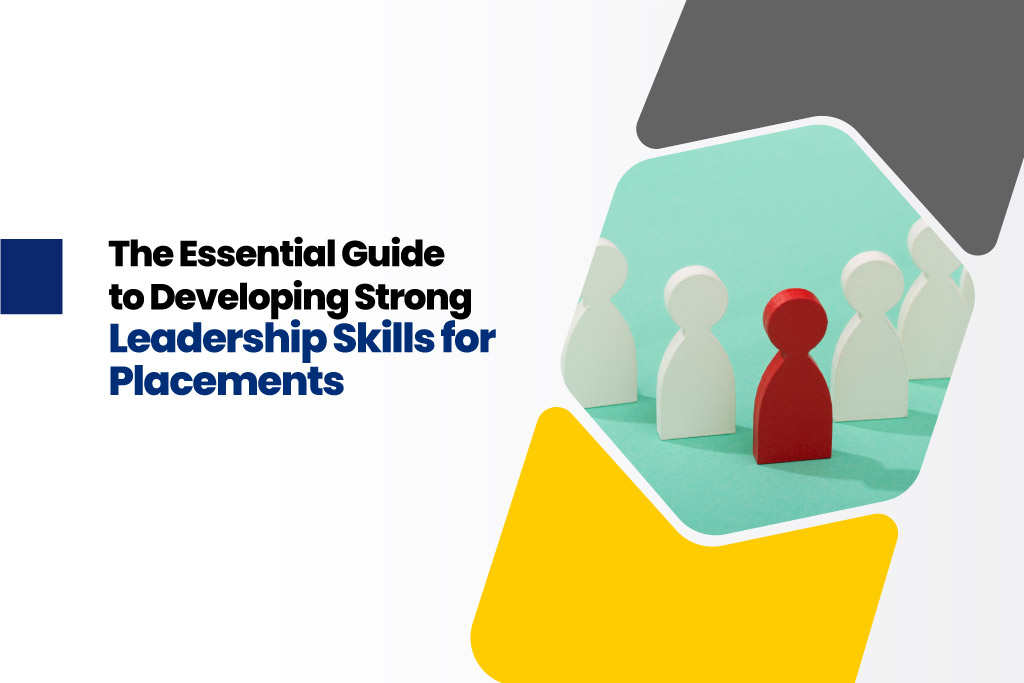Landing into a good job in today’s competitive market is a little hard. Advancing the career is harder. But with good preparation and developing appropriate skills, any individual can easily land on the dream job and make fruitful advancements. During placements, candidates with leadership skills are selected. This is because employers believe that candidates who have good leadership skills can lead and bring a positive change in the organisation. To cater to this demand, Top Architecture Colleges in TamilNadu, are helping students to improve their leadership skills.
In this blog we are going to know different steps and strategies for developing good leadership skills. Read further to know about it.
Importance of Leadership Skills
Leadership skills are not only the title that refers to various abilities. Individuals should be able to motivate teams, provide solutions to challenges and achieve organisational goals. A good leader should be good in communication, problem solving, decision making and emotional intelligence. Having these skills will not only bring good opportunities but also help in the advancement of the profession.
Identify Your Leadership Style
The first and important step in developing leadership skills is understanding leadership style. an individual should know about him and what attracts him. It can be the concept of being a vision leader or a collaborative leader. Individuals should take time to assess the strength and weakness and their natural liking to determine what kind of leadership style they will like the most.
Practise Effective Communication
Communication is a well known and very important skill for an effective leader. they should be able to make their followers understand the goal, the expectations from the followers properly. They should also be skilled listeners to understand others and empathise with your opinion. Communication is very important and providing presentations and feedback, solving problems and building trust among the followers for the team members are equally important too.
Develop Emotional Intelligence
Emotional intelligence is a very important component for a good leader. A leader with high emotional intelligence is good at managing his own emotions. They can understand the impact of words and actions on the team and their behaviour. They very well know the sensitivity of interpersonal relationships. so students should develop their emotional intelligence through self reflection, empathy exercises and meditation.
Lead by Example
Leaders should be smart in their teamwork by giving them an example. They can do that by being a living example. with their actions and words they should be able to portray integrity, accountability and professionalism. If an individual has a commitment to excellence and continuous learning and personal growth it will automatically inspire others to be like them. This will make your team be inspired and act like you.
Foster Collaboration and Teamwork
Every great leader in history understands the importance of collaboration and teamwork. This will also create an inclusive and supportive environment where everyone is valued and respected. Everybody’s ideas and perspectives are taken into consideration. For a leader who understands the importance of collaboration and teamwork he will celebrate diversity and make use of the strength of every team member to maximise success and benefits to all.
Develop Decision-Making and Problem-Solving Skills
Leaders are called to make difficult decisions and solve Complex problems. So a leader should know how to decide quickly and the skills to solve real world problems. They should have critical thinking and analytical skills to view a particular problem in different perspectives. So students can practise taking informed decisions under pressure, get feedback from others, thinking from different perspectives to make the final decision.
Seek Mentorship and Feedback
No leader is perfect. Every leader has something to improve. So they should constantly learn things. They can approach mentors, coaches and anybody who they trust for guidance, support and feedback in the year journey. So students should start networking with experienced people and learn from them. They should be able to take out time to listen, learn and adapt for leadership development and improvement.
Leading Through Adversity
Leading a team is hard and leading the team through adversity is harder. In any journey when faced with challenges and setbacks leaders should remain calm and focus on finding the solutions. They should develop optimism, confidence and determination to work under pressurised situations. So students should learn how to overcome problems with greys and resilience.
Conclusion
In summary, developing strong leadership skills is not a one time task. It is a journey that requires dedication and self awareness. A student has to understand his leadership style, work on the skills required, not the value of emotional intelligence leading by example and empathy to work with the team. Many Best B.Arch Colleges in Tamil Nadu are helping students with it and students should grab this opportunity and make the most of it. Doing this can build residence to face hard challenges in the professional setting. Good leadership skills can help students in placements, internships and professional opportunities.






